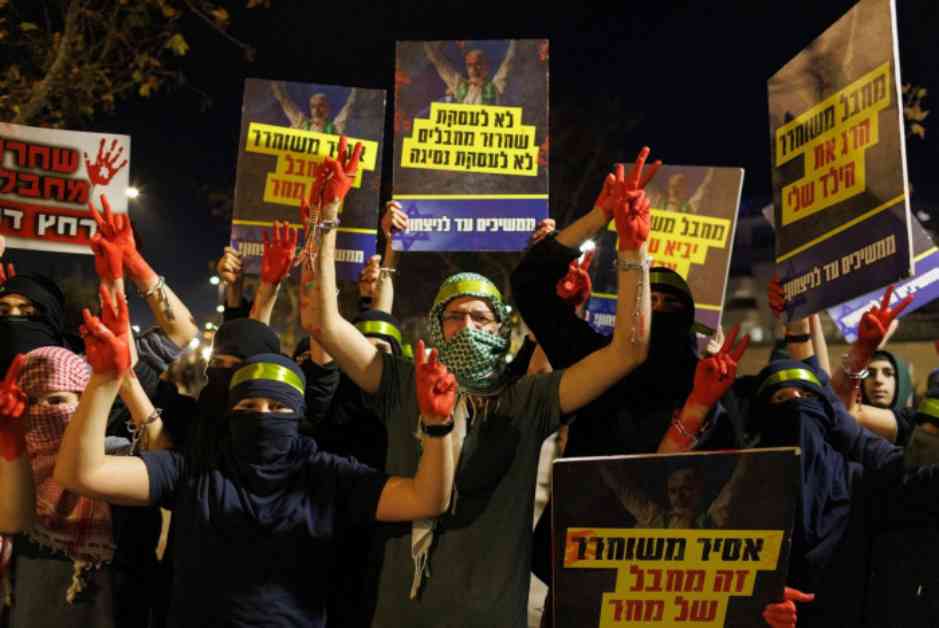Israeli Security Cabinet Approves Ceasefire and Prisoner Exchange Deal with Hamas
Israel’s high-level security cabinet has given the green light to a ceasefire and hostage-prisoner exchange agreement with Hamas, marking a pivotal moment in the ongoing conflict in Gaza. The ceasefire is set to commence on Sunday, putting a temporary halt to the 15 months of intense fighting between the two sides.
**Ceasefire Deal and Exchange Details**
The ceasefire deal includes the first exchange of Israeli hostages and Palestinian prisoners, with the process expected to kick off the day before the US presidential inauguration. The agreement, mediated by the US, Qatar, and Egypt, lays out the gradual release of 33 Israeli hostages held in Gaza and the liberation of around 1,000 Palestinian prisoners by Israel. This move signals a significant step towards de-escalating tensions in the region.
**Political Landscape and Public Sentiment**
Despite the approval of the ceasefire deal, there remains a sense of wariness within Israel regarding the agreement. Many politicians argue that the conflict should persist until Hamas is completely dismantled. This sentiment is particularly strong among far-right members of Prime Minister Benjamin Netanyahu’s government, with Finance Minister Bezalel Smotrich even threatening to resign if the fighting does not resume after the initial ceasefire period.
**Historical Context and Human Cost**
The conflict between Israel and Hamas dates back to October 2023 when Hamas launched an invasion from Gaza, resulting in significant casualties and hostage-taking. Israel retaliated with a powerful military response, leading to widespread devastation and loss of life in Gaza. The toll of the conflict has been staggering, with thousands of lives lost and countless families torn apart by the violence.
**Looking Ahead**
While the ceasefire and prisoner exchange offer a glimmer of hope for peace, the road ahead remains uncertain. Further negotiations are anticipated to address the root causes of the conflict and pave the way for a lasting resolution. The coming weeks will be crucial in determining the fate of Gaza and the prospects for a more stable future in the region.
As we reflect on the complexities of the Israel-Hamas conflict, let us not forget the human faces behind the headlines. Each life lost, each family shattered, underscores the urgency of finding a path to peace. In a world plagued by division and discord, it is moments like these that remind us of the power of dialogue and diplomacy in bridging seemingly insurmountable divides. Let us hold on to hope and strive for a future where conflict gives way to cooperation, and where the voices of peace prevail over the clamor of war.




















